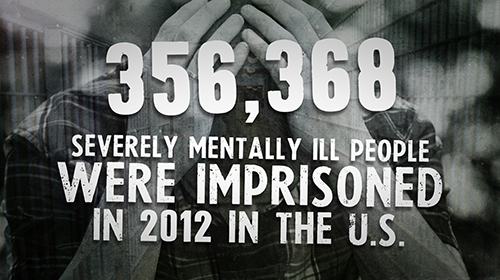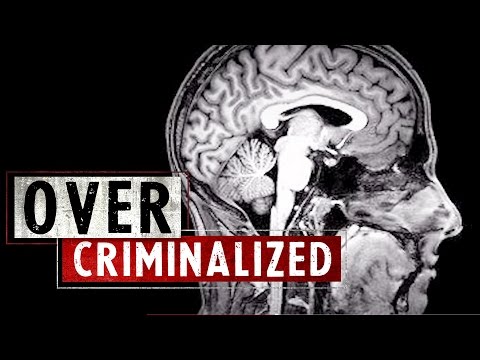
Michelle Mata wants to be treated the way you would want your mom to be treated.
She's an aunt and a neighbor. She likes line dancing. And she suffers from major depressive disorder with psychotic features.
When people like Michelle have a mental health crisis, people often call the cops. The situations are scary and frustrating for everyone involved. The police often don't know how to interact with those in a crisis, and those suffering from a crisis are terrified that the police may use excessive force.


%3Ciframe%20allowfullscreen%3D%22%22%20src%3D%22%2F%2Fwww.youtube.com%2Fembed%2FzSbFbv2Bs_0%3Flist%3DPLQ9B-p5Q-YOP2OVnCPdYKLSmPkqLA2igT%26amp%3Bautoplay%3D1%26autoplay%3D1%26version%3D3%22%20height%3D%22281%22%20width%3D%22500%22%20frameborder%3D%220%22%3E%3C%2Fiframe%3E
Privacy statement. This embed will serve content from youtube.com.
The state of mental health services in this country is unacceptable. Instead of social workers, we have armed law enforcement officers. Instead of treatment facilities, we have prisons and jails. More than half of the people behind bars have shown recent symptoms of mental health problems. The Cook County Jail in Chicago is now the biggest single-facility provider of mental health services in the country. Nearly $9 billion per year is spent locking up people struggling with mental illness. And 356,368 severely mentally ill people were imprisoned in 2012.
But correctional control isn't helping. Many people leave the system worse off, having gone without treatment and services that could have changed the course of their life. Too often, this means they keep coming back instead of getting better.
It's time to cut out the middleman. People shouldn't have to be arrested and thrown in a cell to get treatment. That only adds cost and wastes time. People should get the help they need, as quickly as possible.
San Antonio, Texas, however, is trying something different.
Approximately 95 percent of police officers in San Antonio have gone through Crisis Intervention Training (CIT), a program that teaches them how to spot the symptoms of mental illness and how to safely and effectively interact with someone struggling with a mental health crisis.
People with mental illnesses, including Michelle, work with the police officers to teach them how they should be treated. Michelle helps to train them. Even though it's not the ideal solution, some people call the police when having a mental health crisis. Instead of putting people in handcuffs and taking them to jail, officers in San Antonio take them to a center staffed with mental health professionals.
In the new short film series, "OverCriminalized," we interviewed several members of the San Antonio police force. They report that they are much more confident and comfortable dealing with mental health crises after going through the training. Most importantly, since the implementation, none of the CIT teams have used extreme force.
But it's not just about how to police; it's about the entire goal of these interactions. People struggling with mental illness are no longer taken to a jail cell by way of lengthy and expensive stops in the ER. This program has saved the city about $50 million dollars.
It's good to celebrate what's happened in San Antonio. But we need to step back and ask how the city got into this problem in the first place. The answer is that for decades, this county has been shoving social problems like mental illness and drug addiction into a criminal justice system ill equipped to solve them. This mass criminalization has led to way too many people behind bars, often for too long and for reasons that have no business being crimes in the first place. Communities of color have been hardest hit.
But it doesn't have to be this way. America can safely reduce our reliance on incarceration – several states have reduced their prison populations while crime rates have dropped.
San Antonio is leading the way on finding better approaches to mental illness than handcuffs and jail cells, and other cities should follow suit. Sign the petition to urge Congress to provide treatment for those who suffer from mental illness, not jail cells and arrest records.
"OverCriminalized," a new series produced by Brave New Films in partnership with the ACLU and The Nation, profiles three promising and less expensive interventions that may actually change the course of people's lives. It's time to roll back mass criminalization and focus on what works.
Learn more about prison conditions for the mentally ill and other civil liberties issues: Sign up for breaking news alerts, follow us on Twitter, and like us on Facebook.

